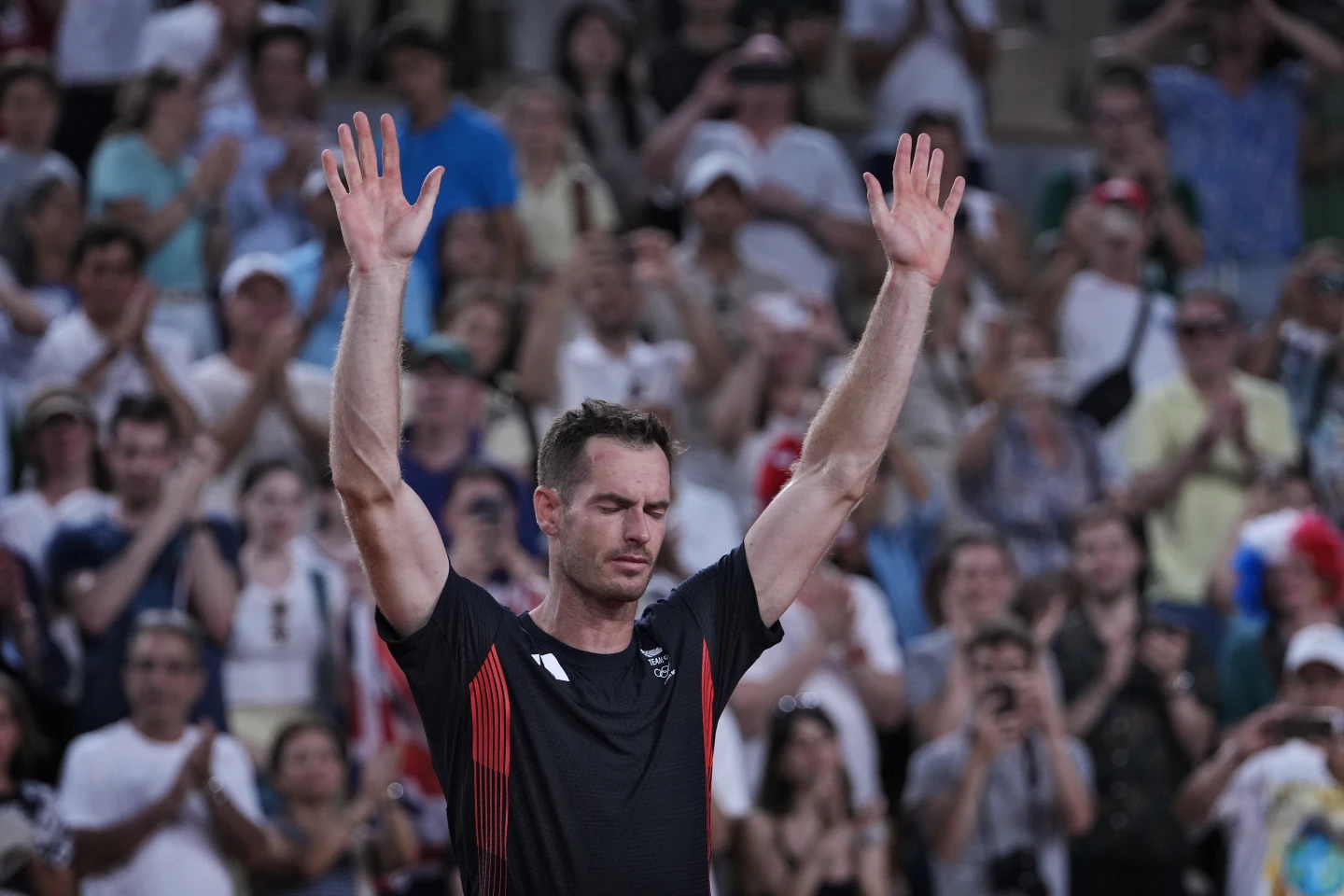Tears filled Andy Murray’s eyes as he walked alone onto the court for his final professional tennis match, ending his career after a loss in the Paris Olympics doubles quarterfinals on Thursday night.
The 37-year-old Murray had planned for the 2024 Summer Games to be his last event. He and his partner Dan Evans were defeated by the American team of Taylor Fritz and Tommy Paul with scores of 6-2, 6-4 at Court Suzanne Lenglen.
“I knew this moment was coming for the last few months. If it didn’t happen today, it would have been in a few days, and I was ready for it. Obviously, I was emotional because it’s the last time I would play a competitive match. But I am genuinely happy right now.
I’m happy with how it’s finished,” said Murray, a three-time Grand Slam champion and the only player with two Summer Games singles golds.
“I’m glad I got to go out here at the Olympics and finish on my terms,” he said, “because at times in the last few years, that wasn’t a certainty.”
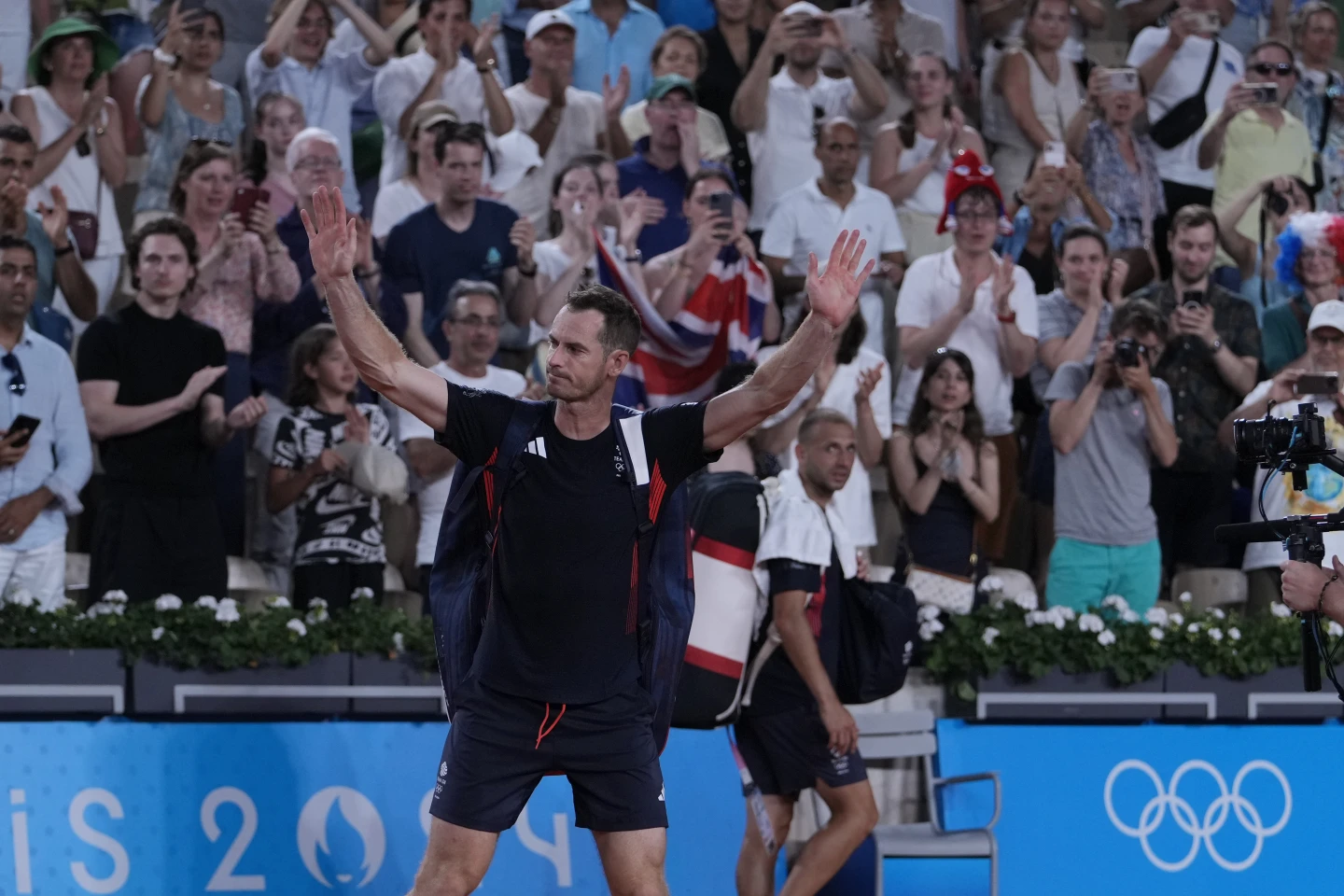
Murray has faced many injuries in the later years of his career, including two hip surgeries, one with a metal implant in 2019.
Most recently, he had surgery to remove a cyst from his spine in June, which forced him to withdraw from singles at Wimbledon and the Olympics; he only played doubles in both events.
“The pain and discomfort in my body is not good, and that’s also why I’m happy to be finishing. If I kept going and kept trying, eventually you end up with an injury that could end your career,” Murray said. “So I know that now’s the right time. Physically, it’s been really hard.”
The British team had saved a total of seven match points—let’s call them “retirement points”—earlier in the tournament, five in the first round and two more in the second round, to extend Murray’s career.
But Murray and Evans couldn’t find that same spark again against the third-seeded Fritz and Paul. “Those guys were good today. That’s the bottom line,” Evans said. “And we were not.”
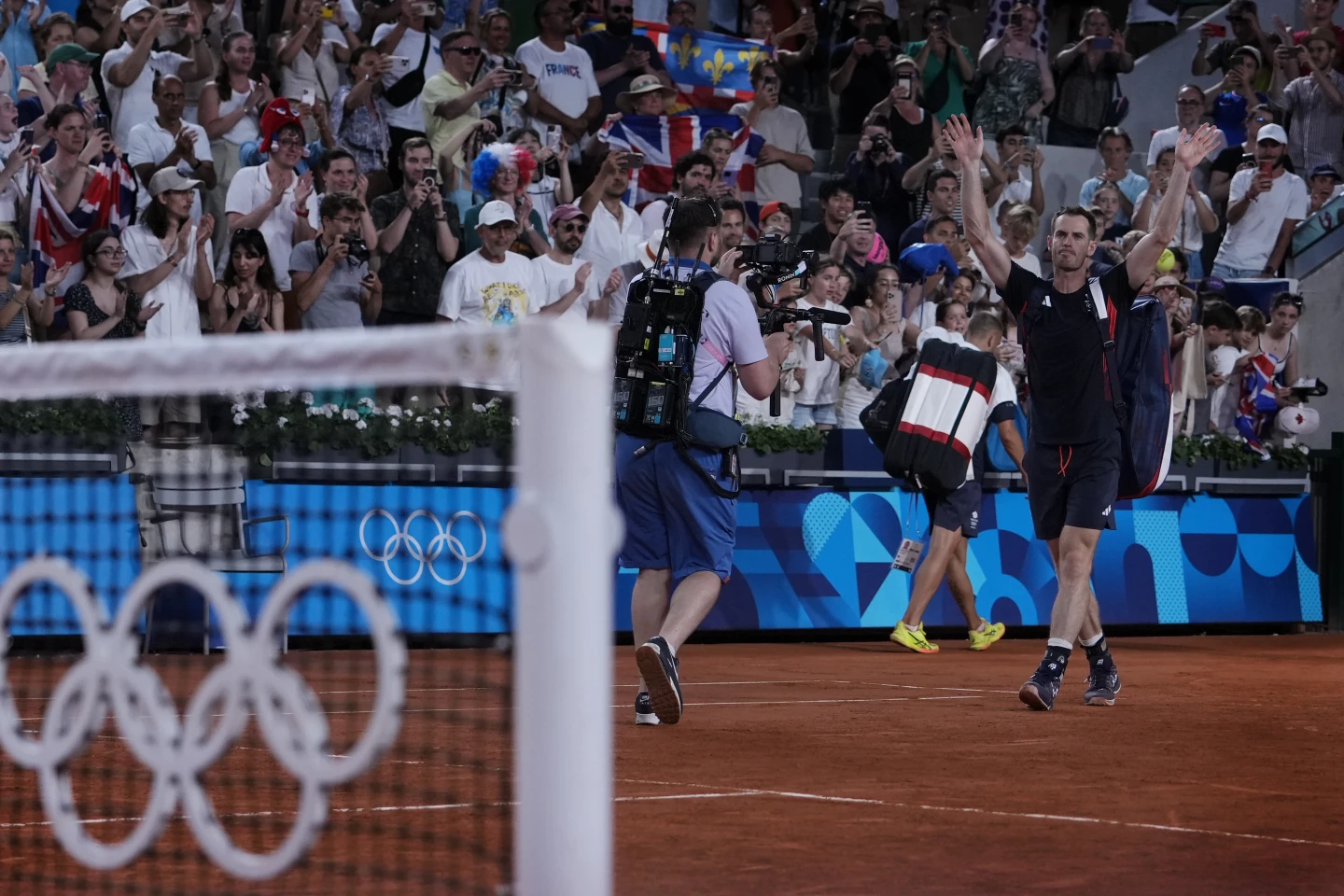
Murray has won Wimbledon twice and the U.S. Open once, along with Olympic gold medals from London in 2012 and Rio de Janeiro in 2016. His first Wimbledon win in 2013 made him the first British man to win that title in 77 years.
He also won Wimbledon again in 2016, and his first major win was at the U.S. Open in 2012. When the match ended on Thursday, the crowd gave a standing ovation. Evans, Fritz, and Paul all applauded as well.
“We were pumped up to win, but it is sad, I guess, to see it end for Andy. He’s someone that both of us have looked up to for a very long time. He’s a great guy,” Fritz said. “I don’t take a lot of pride in doing it, but we’re here to win a medal.”
Paul and Fritz will play against Matt Ebden and John Peers of Australia next. The other semifinal will be between the fourth-seeded team of Austin Krajicek and Rajeev Ram of the U.S. and Tomas Machac and Adam Pavlasek of the Czech Republic.
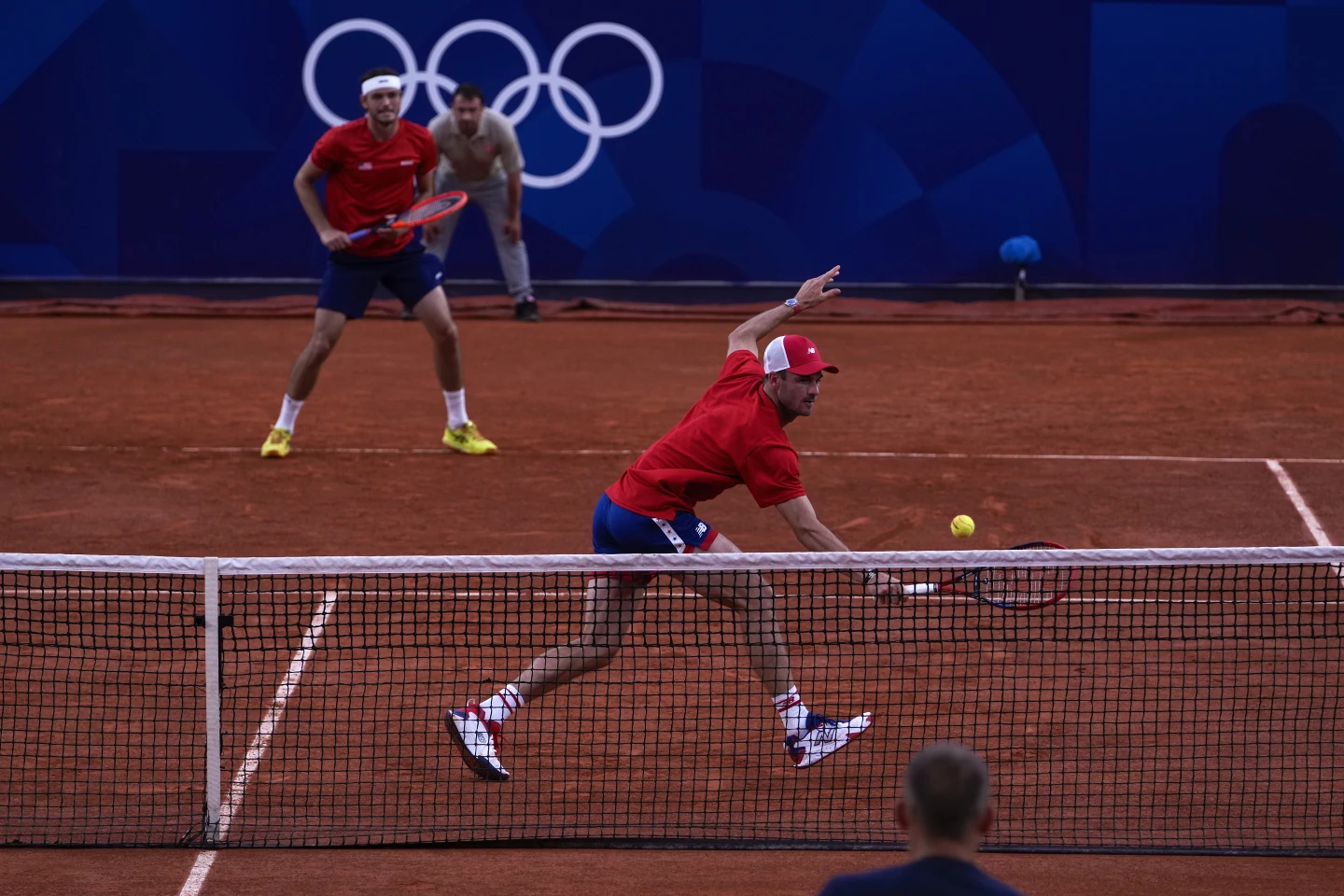
As he left the court for the last time as a competitor, Murray stopped to sign autographs for fans.
He will always be remembered for making the most of his talent and earning a place among the Big Three of men’s tennis—Roger Federer, Rafael Nadal, and Novak Djokovic—who together hold 66 Grand Slam singles titles.
He also ended a season ranked No. 1. “Just incredible resilience throughout all his career,” Djokovic said last month. “Multiple Grand Slam winner. Legend of the game.”
Murray’s tough playing style, strong returning skills, and determination made him successful on the court and well-liked off it.
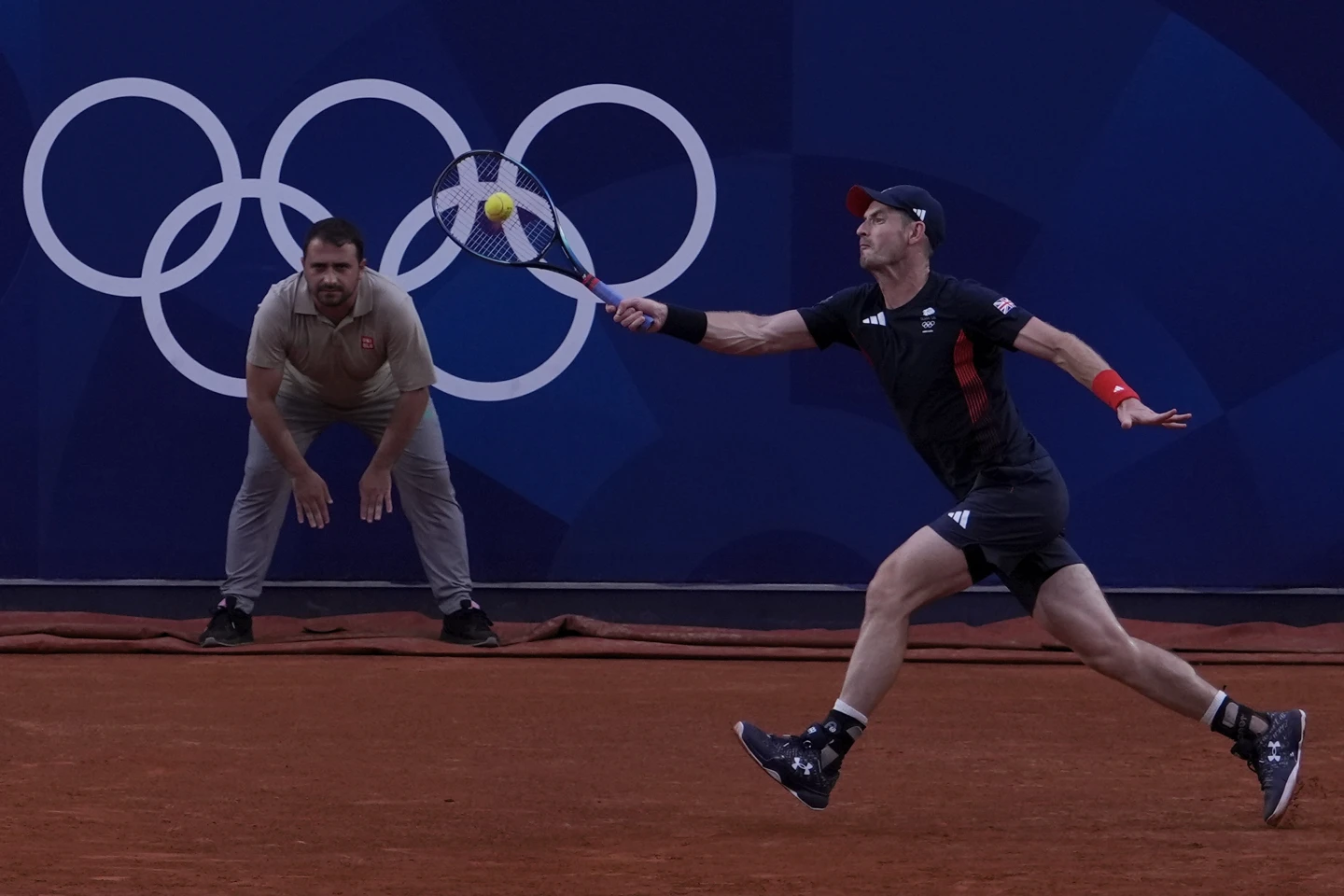
He supported women in tennis, such as hiring Amelie Mauresmo as his coach—a rare choice for a top male player—and was never afraid to speak out on various issues affecting his sport or society.
Looking ahead, Murray said he’s unsure about his next steps, mentioning he didn’t enjoy being a TV commentator when he tried it before.
For now, he plans to take a break and eventually decide what to do next.
“If that’s nothing—and being at home and being with my family and being a dad,” Murray said, “that’s something I look forward to.”
